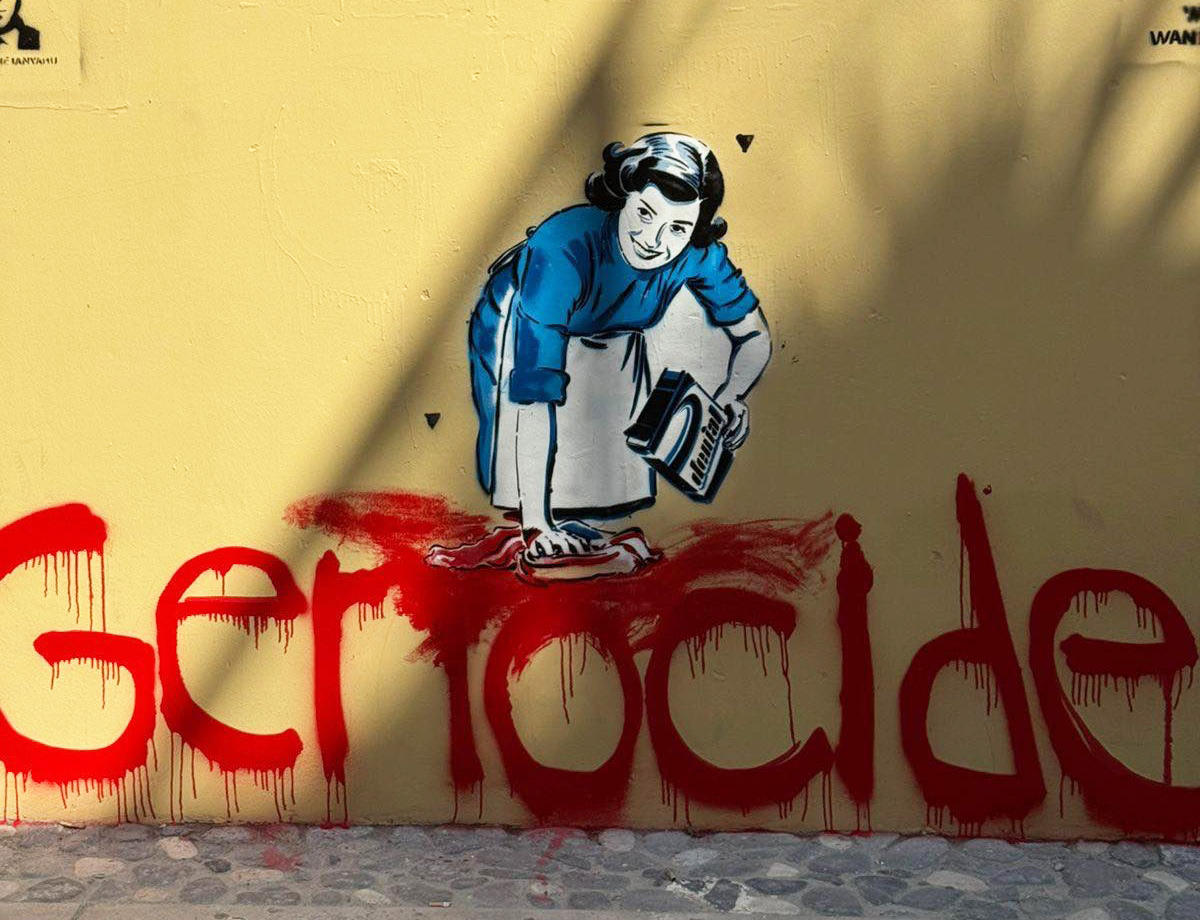Reaction from opposition figures to a circular sent by the interior ministry to every municipality and village demanding the removal of any anti-Israel graffiti was “excessive”, deputy government spokesman Yiannis Antoniou said on Monday.
Speaking to CyBC radio, he said sending a circular on the request of the State of Israel is not tantamount to ceding of Cyprus’ sovereignty to it, and that it was sent “so that there can be cooperation, with the aim of addressing movements or actions which promote hate speech”.
He said the content of the circular “could not be clearer, so as to not create false impressions.
“The government believes this issue should not be continued further,” he added.
His comments failed to convince Akel leader Stefanos Stefanou, however, who wrote in a post on social media that “no, the issue is not over”.
“How can an issue really be over when a government – your government of Nikos Christodoulides – instead of defending the sovereignty of our country and the dignity of our people, turns itself into the agent of another country and promotes its orders?” he asked.
He added that “condemning war crimes does not constitute ‘hate rhetoric’” and that “condemning a genocide carried out by an occupying state that murders civilians and children, displaces populations, and illegally colonises people … is not ‘hate rhetoric’”.
“The issue is not over, because if the voices which condemn the violation of international law and crimes against humanity are silenced, if the voices which resist the occupation and colonisation, which express solidarity and support for struggling peoples, are silenced, then we will all lose,” he said.
He then added that “we will also lose”, as “we are victims of invasion, occupation, displacement, and colonisation by Turkey”.
The interior ministry’s permanent secretary Maria Christofi penned the circular, saying she had been given “instructions to forward” one sent to Cyprus by Israel’s diaspora ministry on the matter.
She also said she had been instructed to “forward instructions from [Interior Minister Constantinos Ioannou] that any such slogans which are detected be removed”.
A copy of one page of the Israeli circular contains four photographs of what the country considers to be “antisemitic and anti-Israel graffiti”, the first of which shows a painting of a Palestinian flag being held up by two heart-shaped balloons.
This painting had been created in reference to the releasing of two heart-shaped balloons attached to a Palestinian flag into the skies above Limassol’s Alphamega Stadium during a football match between Pafos FC and Israeli side Maccabi Tel Aviv in July.
The second photograph was of the word “Gaza” painted in blood red above a painting of a baby, while the third was of a tin oozing blood red paint, labelled “genocide”.
The fourth and final photograph was of the words “new nazi [sic] scum” above a modified Israeli flag, wherein the star of David had been replaced with a swastika.
Speaking to the Cyprus Mail later in the day, sources close to the government dismissed the notion that Israel is interfering in domestic Cypriot affairs.
The interior ministry’s circular, dated September 11 this year, was leaked to the media over the weekend. It specifically references the email sent to the Cypriot government by Amichai Chikli, Israel’s Minister of Diaspora Affairs.
Chikli’s email is dated August 8. It bears the letterhead of the state of Israel.
Sources close to the government told us that the complaints about the graffiti – which Chikli dubbed ‘anti-semitic and anti-Israeli’ – evidently originated from Israelis living in Cyprus.
What happened is that Chikli addressed the email to the president’s diplomatic office, although it was intended for the ministers of justice and the interior.
The president’s diplomatic office subsequently forwarded the email to the respective offices of the two ministers. There followed the interior ministry’s circular to the municipalities.
But our sources categorically rejected the idea that this constituted interference by the state of Israel – even after the Cyprus Mail pointed out that complaints by Israeli residents here could have been made to local authorities, rather than having the Israeli government intervene.
“The email was not a note verbale, it was not that official,” the sources said.
A note verbale is a form of diplomatic communication, issued by one foreign ministry to another country’s foreign ministry. It is often used to register a complaint.
As for the circular issued to the municipalities, the sources said this was more of a “reminder” rather than “an order or instruction”.
Asked whether this means the Cyprus government adopts the characterisation of the graffiti as “anti-semitic”, the sources said “not necessarily”.
Chikli’s email meanwhile also got published in local media.
It reads: “Despite commendable activity by municipal authorities and the police, in recent months Cyprus has witnessed several anti-semitic and anti-Israeli incidents, particularly in the context of the war in Gaza.”
It goes on to cite some “notable examples”. These include anti-Israeli slogans in Larnaca on January 26 this year; as well as graffiti in Limassol in July, “with the word ‘genocide’ styled in the Coca-Cola logo, alongside an image of Netanyahu with the phrase ‘wanted’.”
The latter was removed in days, Chikli recalls in his email.
The Israeli minister goes on to request that Cyprus “consider” taking a number of steps – such as “increased enforcement against hate crimes and incitement, ensuring perpetrators are brought to justice; continued rapid municipal action to remove inciting messages from public spaces…”
Signing off, Chikli says that his ministry “stands ready for full cooperation, including sharing relevant information, coordinating educational initiatives, and supporting tools to prevent hate.
“I am confident that our joint action will help preserve the shared fabric of life and further strengthen the friendship between Cyprus and Israel.”







Click here to change your cookie preferences